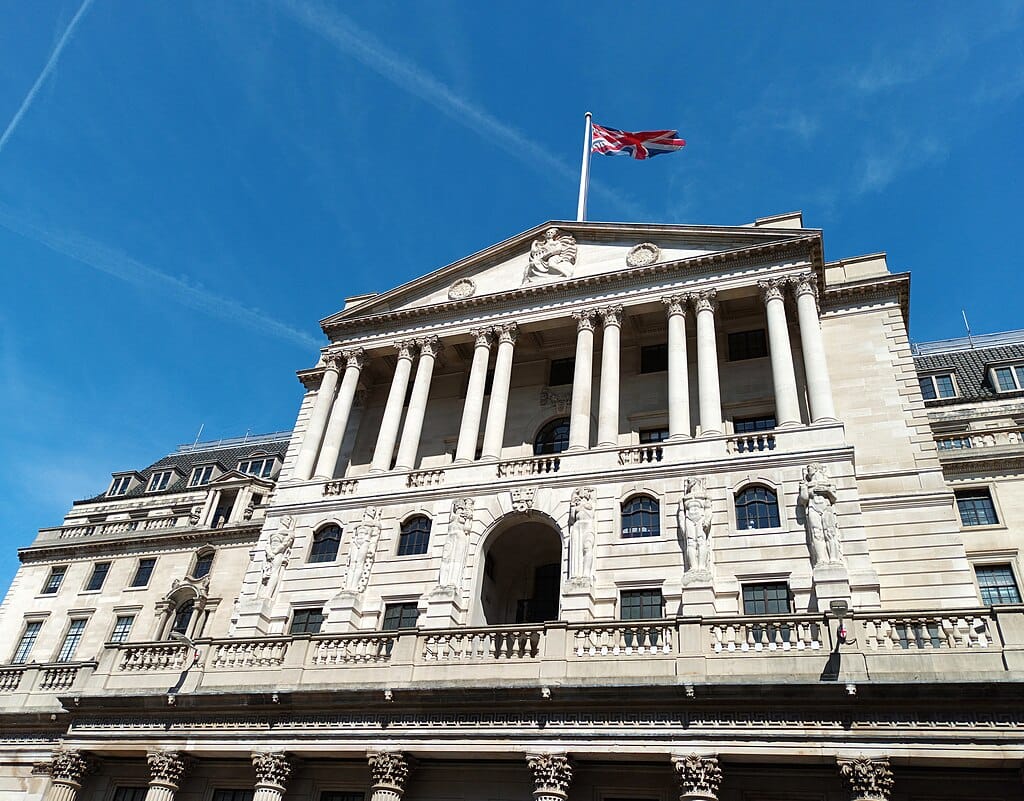
Wealth taxes don’t go far enough: let’s transform our economy with public money
Wealth taxes are crucial to build an economy that works for people and planet. However, they are just one piece of the puzzle: there is also a need to make use of public money beyond taxes to rise to the urgency and scale of this challenge. Sheridan Kates shares proposals on how to make that happen.
Wealth taxes are firmly at the top of the wish list for progressives across the UK. People are fed up with the widespread inequality in our country, after decades of stagnant real wages and cruel austerity measures. Too many of us are stuck paying unaffordable rents and energy bills for cold, damp homes. We’re struggling to afford the basics or to get appointments to see our dentists and GPs.
We need change, but we’re told that if our government spends money to improve our public services and put money in our pockets, then it has to show how it’ll get that money back from taxes. We’re told that “unfunded” spending is what crashed the economy under Liz Truss. As a result, wealth taxes on the ultra-rich (people with around £10M or more) are being hailed by left-wing politicians and some millionaires themselves as the way to make this happen.
However, the wealth tax proposals that are circulating aren’t enough to cover the scale of public spending that’s needed, and as a result they’re open to attack. The most expansive suites of wealth taxes would bring in annual revenues of between £50B to £70B. Studies like this one, however, suggest we need £142B extra every year just to maintain public services at the levels they were at in 2023. And that doesn’t even take into consideration the extra public spending we need on the renewable energy transition, social housing, protecting our communities from the more frequent flooding and heatwaves we’re experiencing—the list goes on.
So if these wealth tax proposals aren’t enough, then how can we meet the scale of what’s necessary? By harnessing the power of our public money, and understanding that a “budget deficit” from the government is simply how we increase our collective wealth. We don’t even rely on the “kindness of strangers” to facilitate those budget deficits through borrowing—in countries like the UK, the government isn’t actually borrowing at all, as shown by a meticulous recent academic paper.
This is because all government spending creates new money: it results in an increase in bank reserves and corresponding new commercial bank deposits for the recipients of the spending. By using those extra reserves to buy government bonds, banks can lock in a higher overall interest rate than if they just held them as-is. There is, therefore, always guaranteed demand for our bonds. Our banks will always want them as they get better returns, and they get the means to buy them from the government spending itself. Selling bonds is never actually about funding government spending; it’s a policy choice to provide banks and financial institutions with safe assets.
Of course, bonds are only valuable if the holders know they will actually get the interest promised, and can sell them on when needed. However, the government can literally never default on the interest or fail to return the money when the bonds are due for repayment—in fact, UK law would actually have to be changed for either of these things to happen. There’s a reason why our government bonds are treated as some of the safest assets out there.
And when you see the scary headlines saying that “the cost of borrowing is increasing”, that too is something over which the government has ultimate control. It can instruct the Bank of England to announce that it will always buy bonds back at face value if desired—exactly what they did to halt the spike in interest rates after the Liz Truss budget (just too late for her to stay in power). They didn’t even have to spend the money that they announced—the mere statement saying they would is what calmed the “markets”. Truss didn’t have the support of her government to make this happen, but it’s an approach that other central banks like Japan’s have been taking for years.
The last concern you’ll hear is that if the debt continues to increase, the exchange rate will collapse, creating inflation risk due to our reliance on imports for energy and food. It’s true that we must improve our self-sufficiency in these key areas, not least to better withstand shocks like the ones we’ve seen in recent years from “climateflation” and the war in Ukraine. It’s not a given though that the exchange rates would depreciate. Targeted spending would put more money in people’s pockets and lead to higher GDP through multiplier effects, which might attract more investors to hold money in sterling, leading to a currency appreciation.
But let’s say for the sake of argument that public spending does cause the pound to depreciate. Even in that case, there’s little empirical evidence to show that exchange rate depreciation translates into inflation in countries with advanced economies like the UK—we saw the pound fall against the dollar by more than 30% in the years following the Global Financial Crisis of 2008, with no inflation associated with that. A sharp fall following the Brexit vote in 2016 resulted in only a 2% increase in inflation. A graph of exchange rates against inflation shows no predictable correlation, because businesses often choose not to pass on the higher cost of imports to consumers. The benefits of investing in our country are far likelier to outweigh relatively small shifts such as these.
It’s still important that we have a robust tax system; without it, we’re at risk of losing control over our currency. If you could earn and spend money in some other currency in the UK without paying taxes in pounds, then there would be nothing to stop the demand for our currency falling to zero and becoming useless. But it’s absolutely not because that money is needed to fund our government spending.
Once we start thinking this way, we’re liberated on so many fronts. For example, we can be so much more ambitious in the crucial fight against wealth inequality. A wealth tax of 1-2% does little to reduce overall inequality when the richest 250 families have seen their wealth grow on average by 9.1% per year. The ultra-rich will just keep getting richer regardless.
In a world where we’re no longer scared of losing rich people’s money, because we know it doesn’t fund our public services, we can set up direct democratic institutions like People’s Assemblies, and use them to decide as a society how much money we want to allow anyone to have for themselves. Then we can start taxing their wealth at levels approaching 100% above that. We can make it impossible for billionaires to buy our politicians and essential services.
It’s then up to all of us to democratically decide how we want to transform our economy. We don’t need to chase growth by courting private businesses for investment and ensuring they get the returns they’re looking for. We can direct public money to wherever there’s a need, and the real resources (e.g. labour, materials or energy) are available to meet that need.
We can ensure that anyone looking for a job can be paid by their local council to do work that their community decides is important. We can decide that fundamental human needs like housing, education, transport and energy should be available as a human right, taking them out of the private market and delivering them free or at low cost to everyone. We can fund our farmers to move away from environmentally-damaging agricultural methods towards regenerative practices that set us up to withstand the climate crisis that is already upon us. We can tax and regulate the private sector if we need to get the real resources they’re using, and train up well-paid workers in badly understaffed areas like the care economy and health services.
We need to show that we understand that we don’t need rich people’s money to fund our public services. Let’s harness the power of our public money to build the society we deserve.
Related work:






